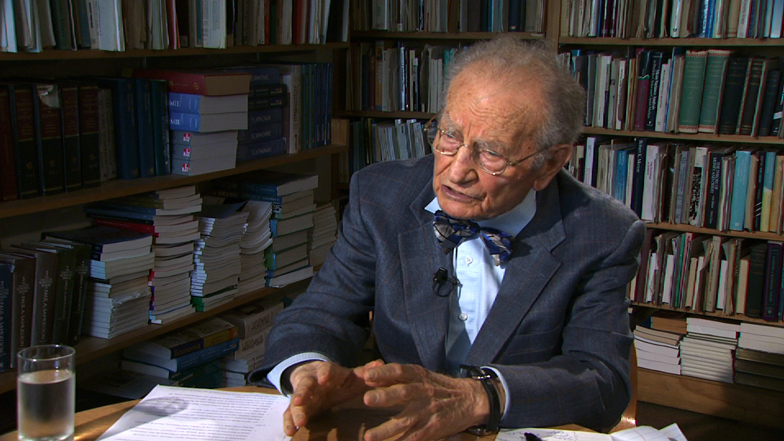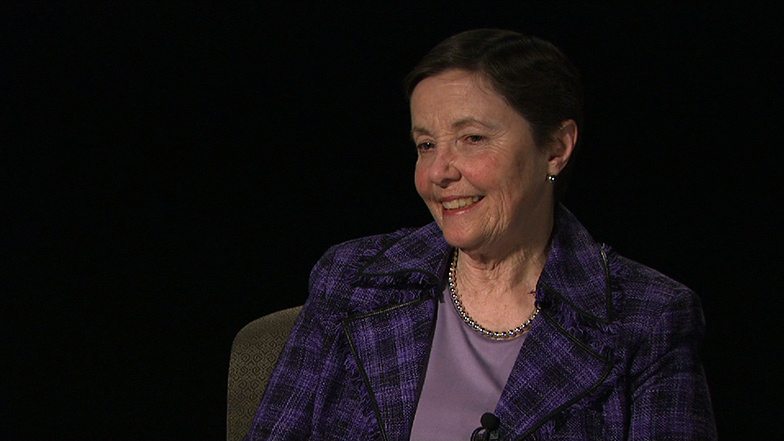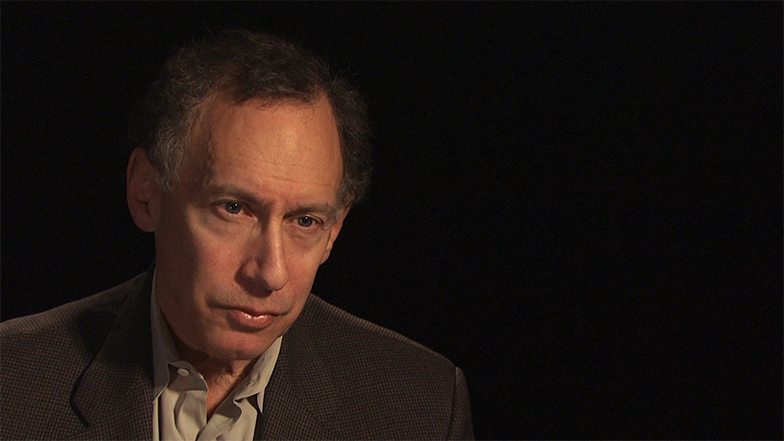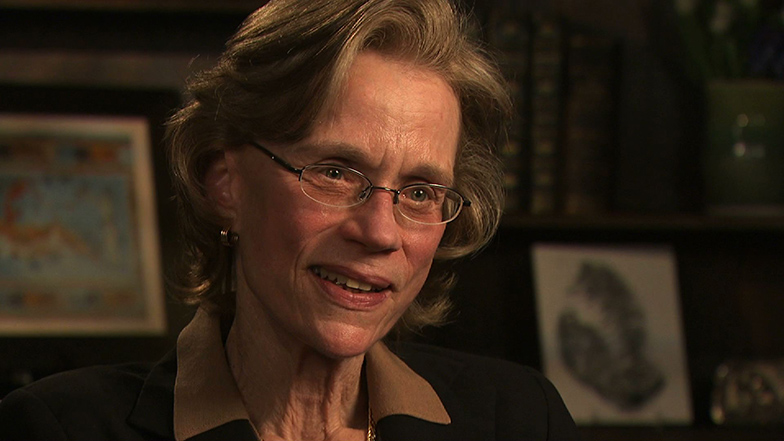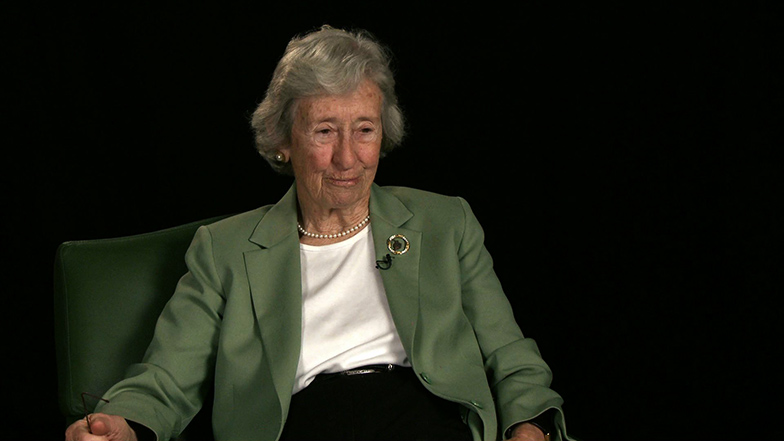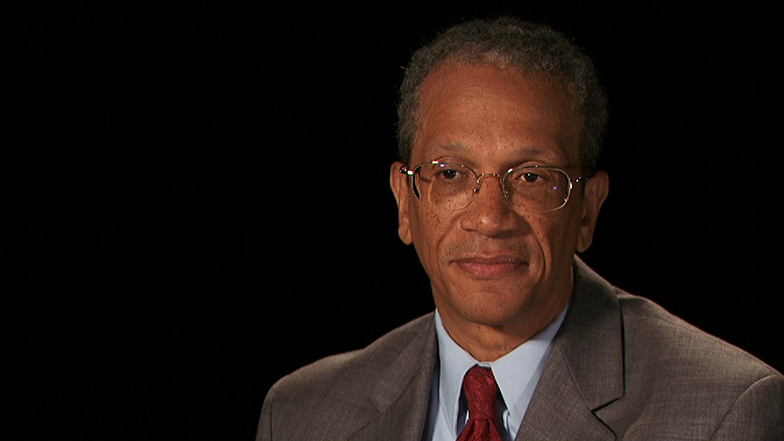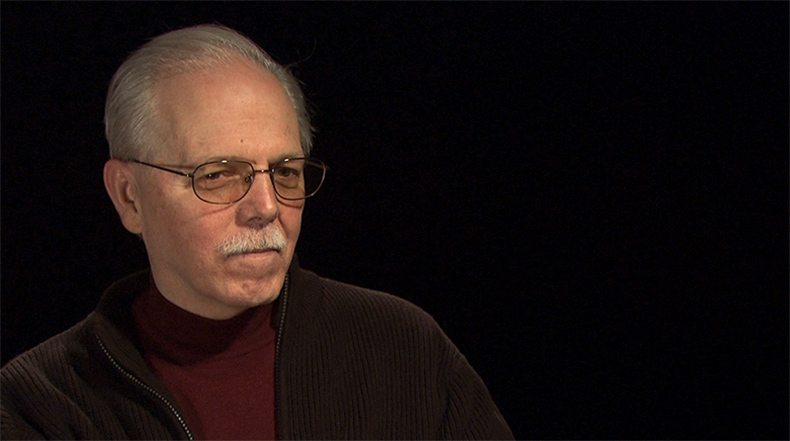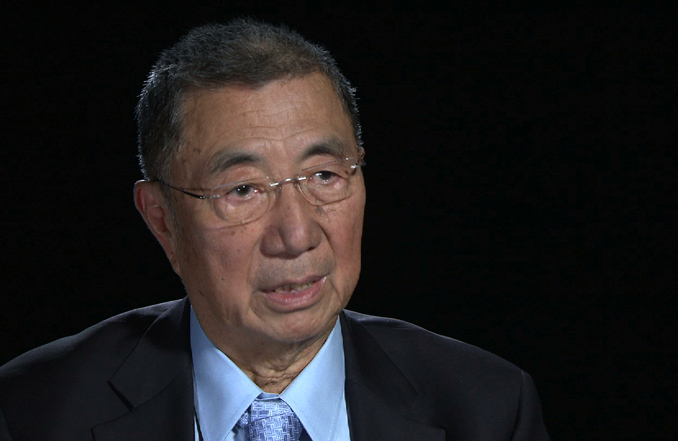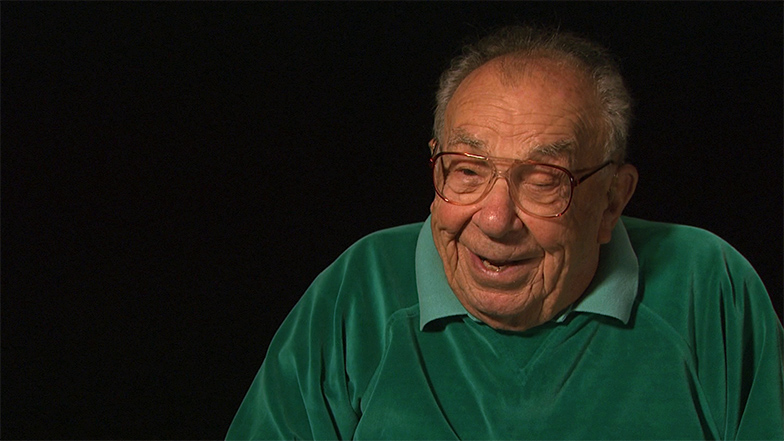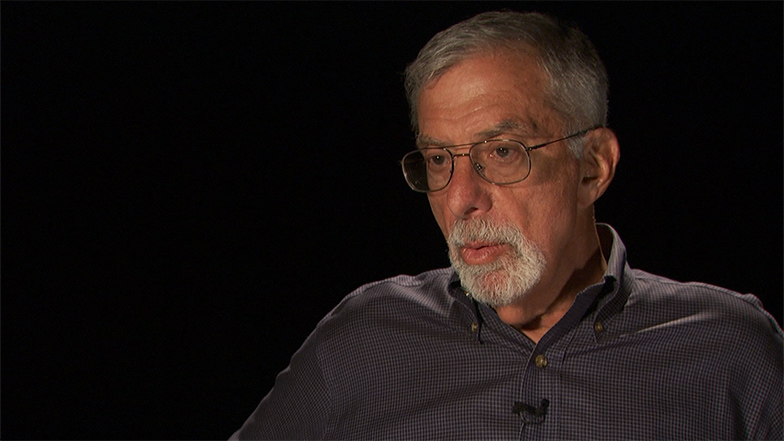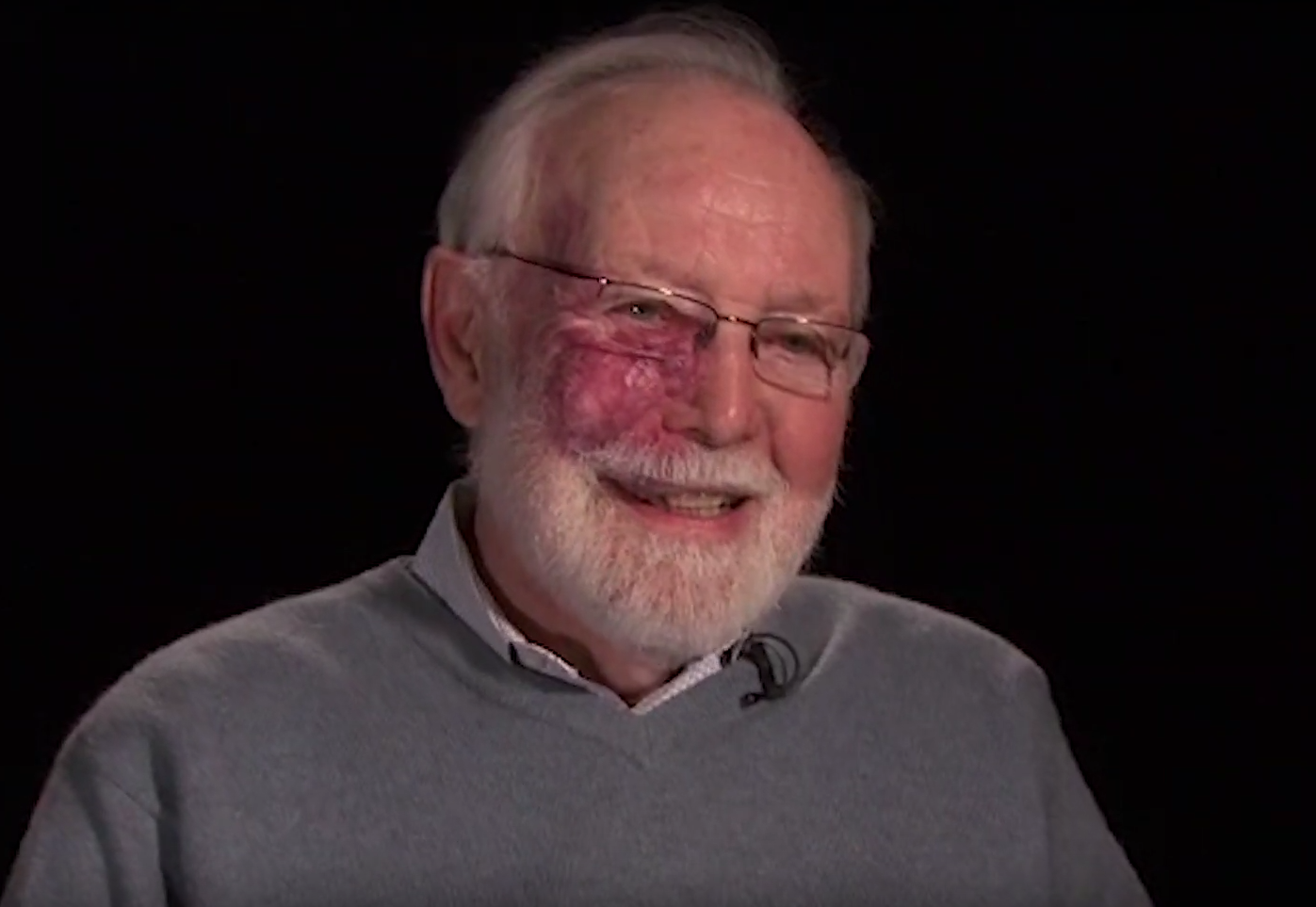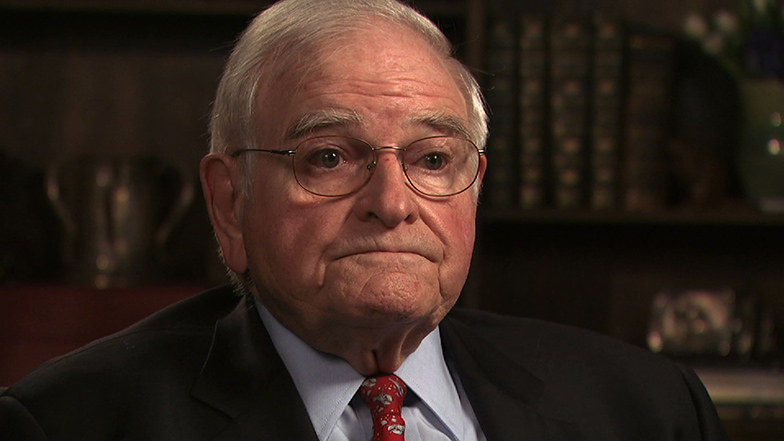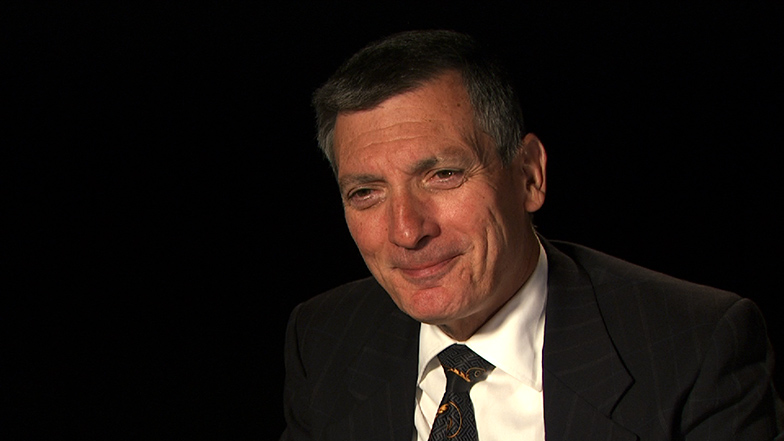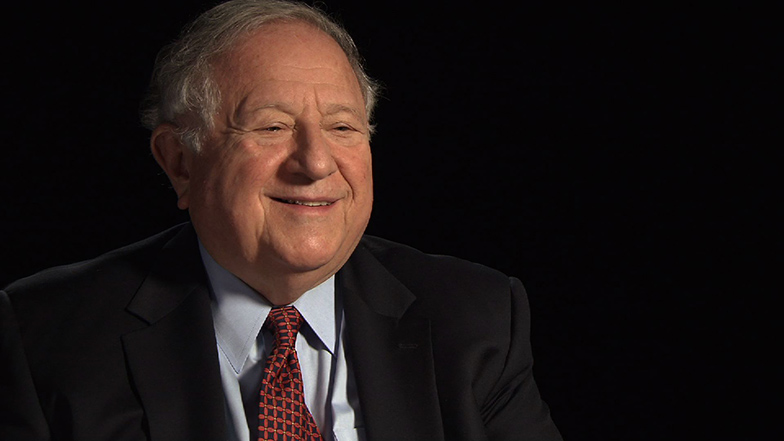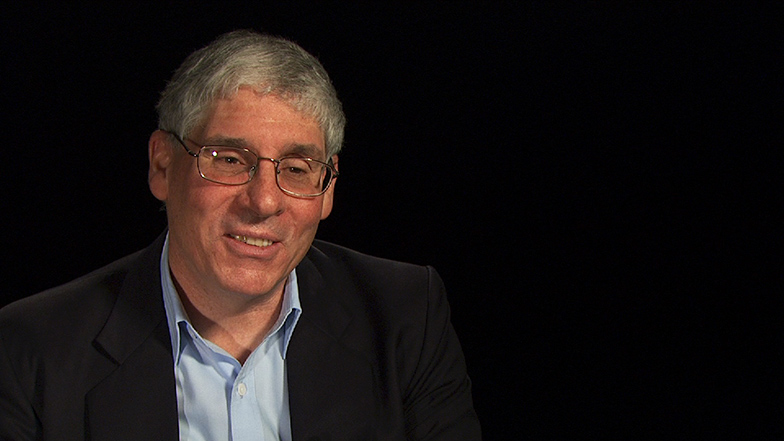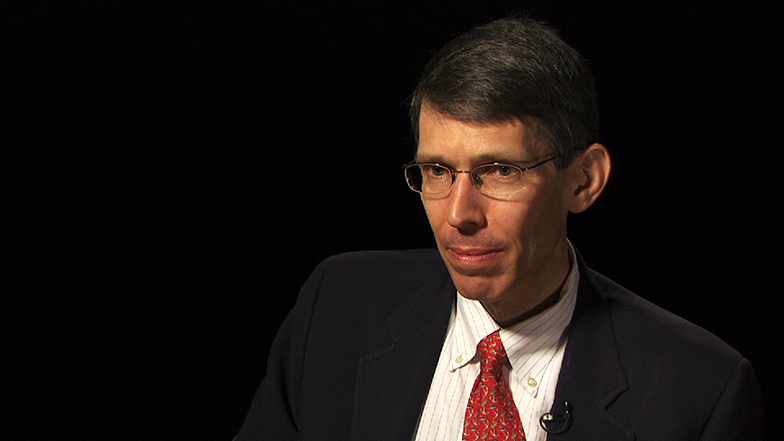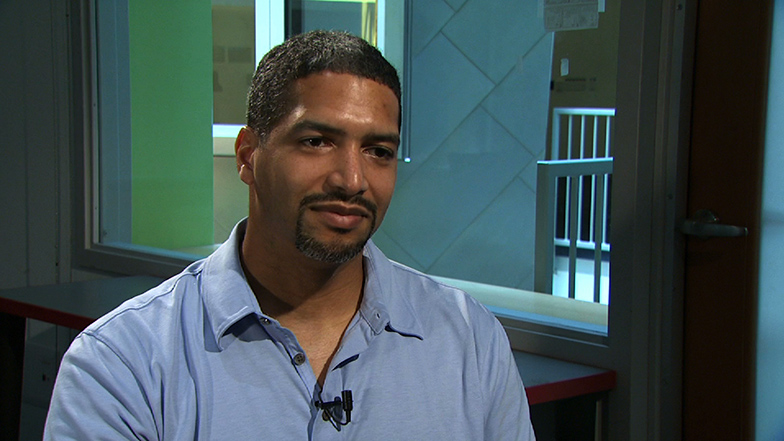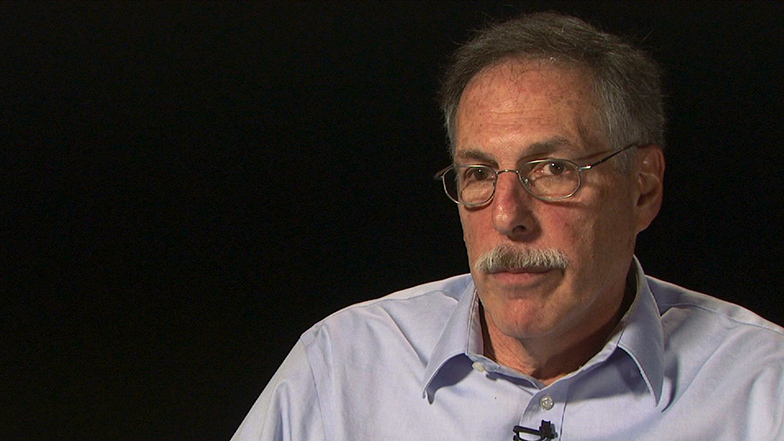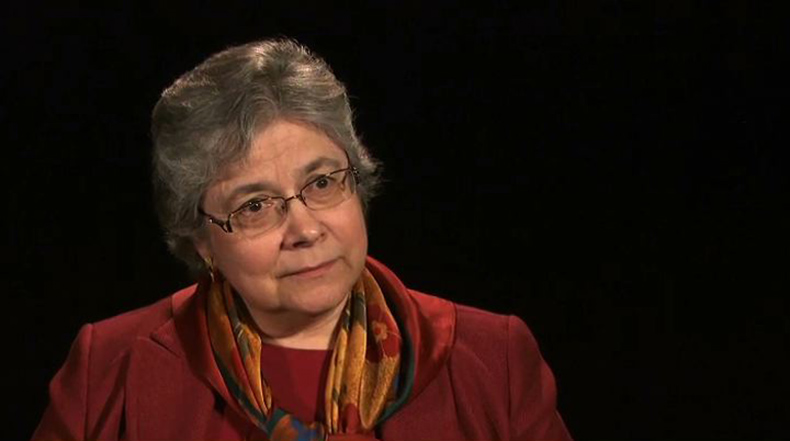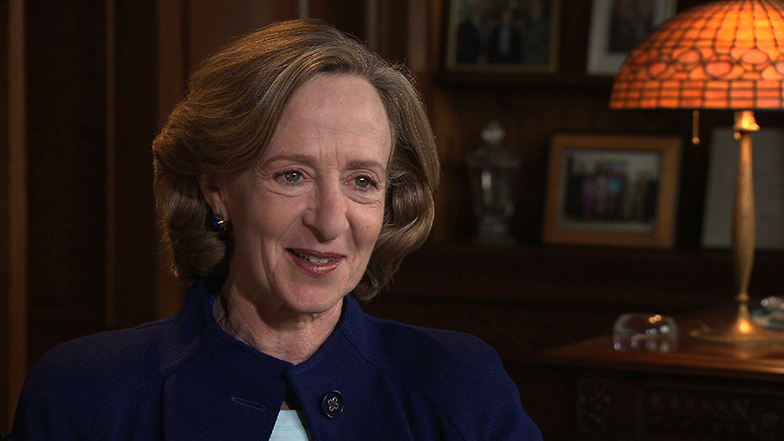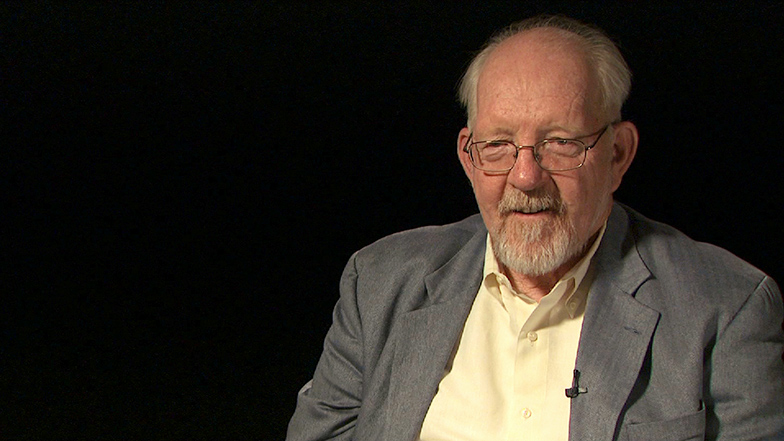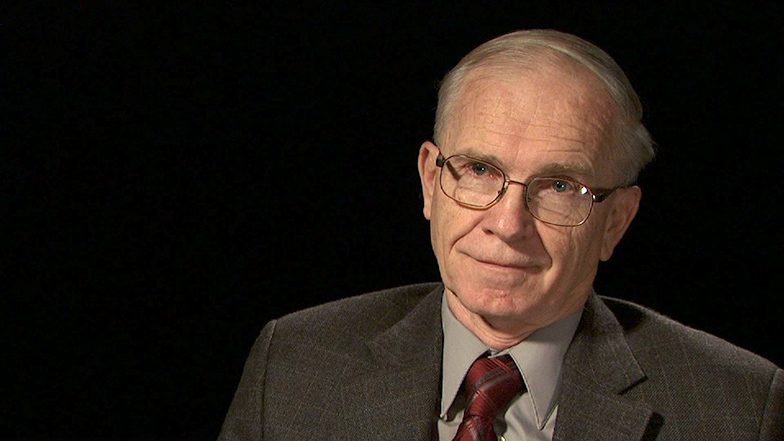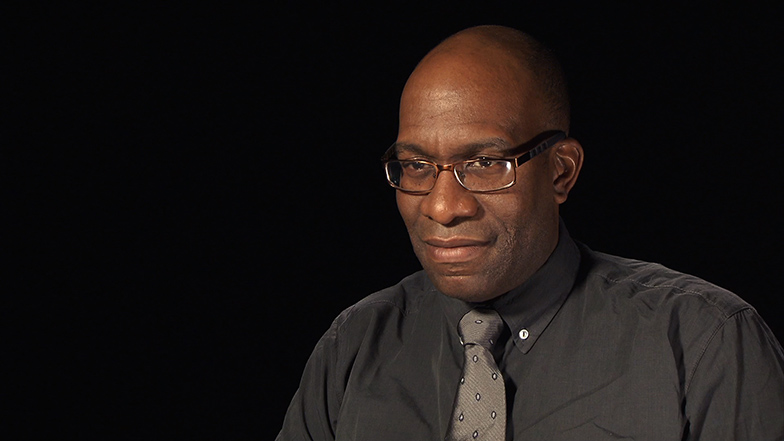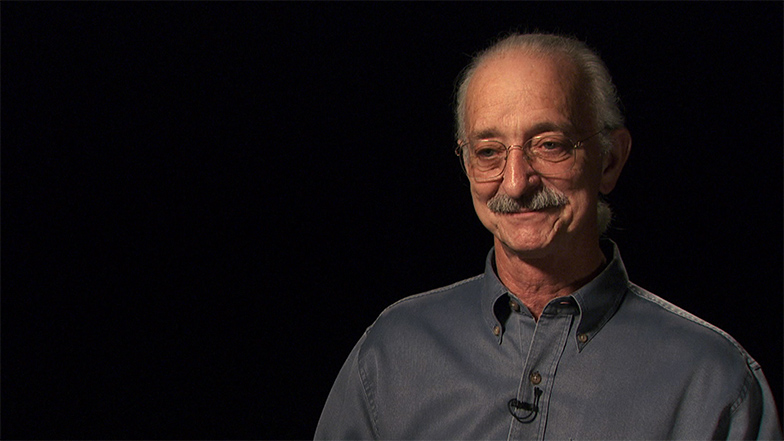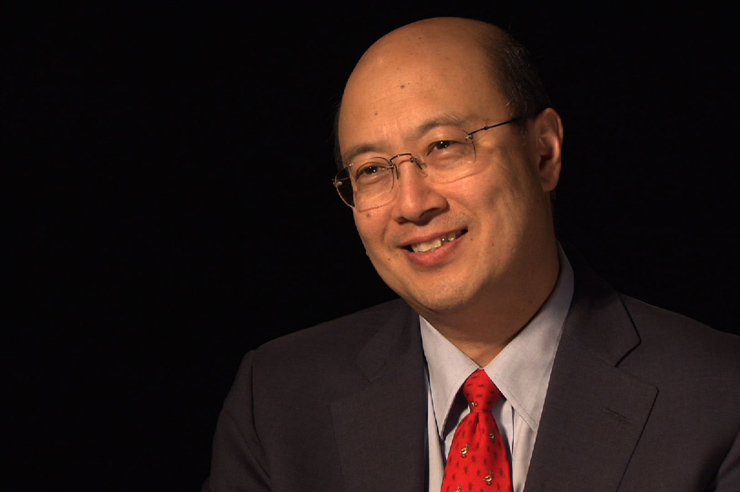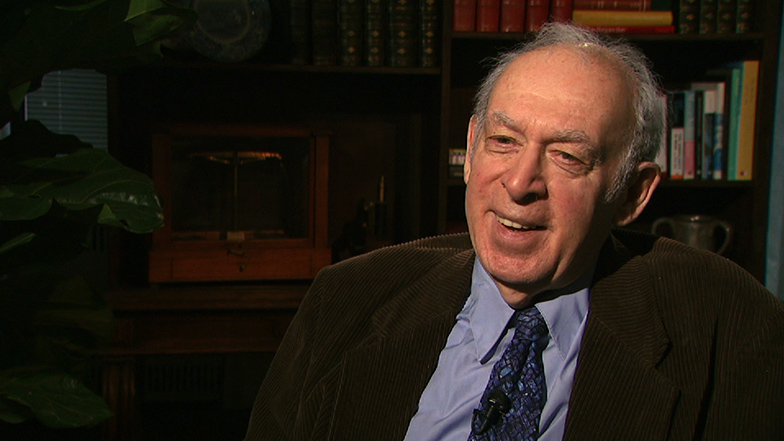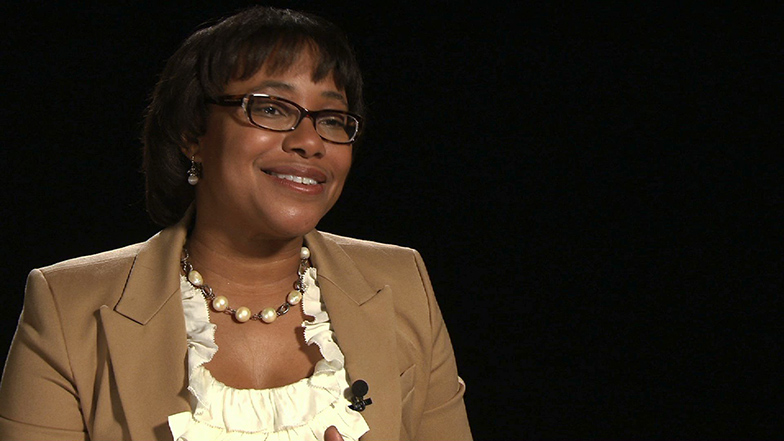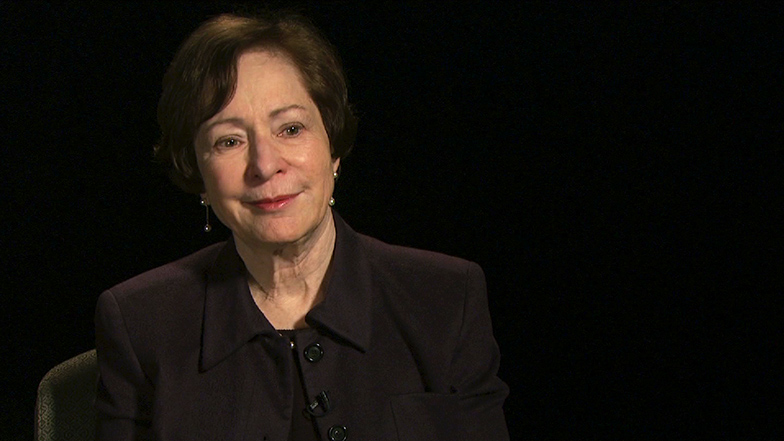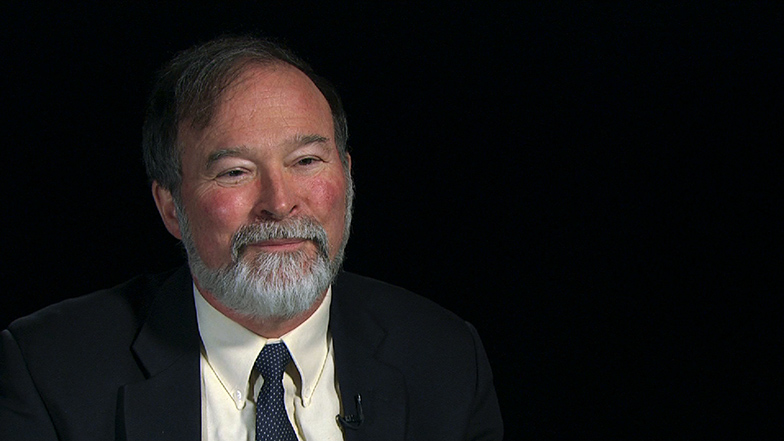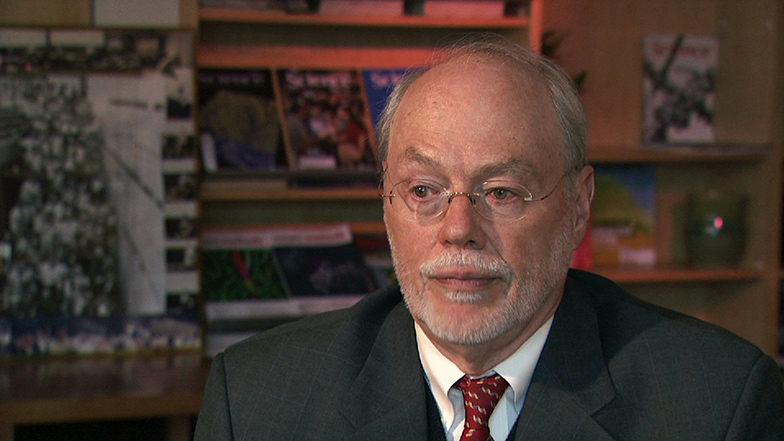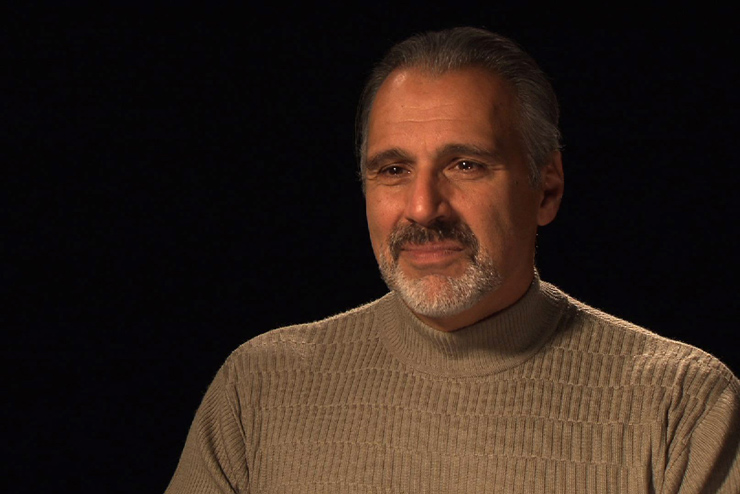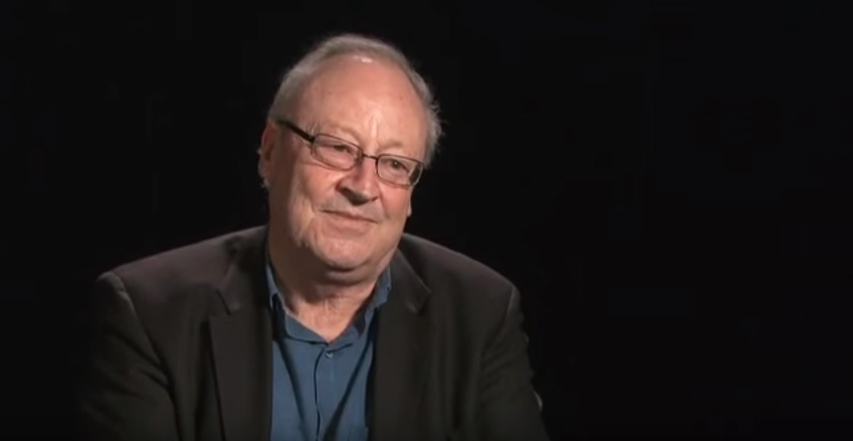John DiFava
INTERVIEWER: Today is December 1, 2011. My name is Larry Gallagher, and I have the good fortune to be talking today with John DiFava as part of the MIT150 Infinite History Project. John DiFava is currently MIT'S director of facilities operations and security where his responsibilities range from serving as chief of MIT'S campus police to directing MIT's central utilities, grounds, repair and maintenance, mail, parking and transportation, and custodial services.
John came to MIT 10 years ago after a distinguished career as a member of the Massachusetts State Police, rising to the top rank of colonel in 1999. Welcome, John, and thank you for taking the time to talk with us today.
DIFAVA: Morning, Larry.
INTERVIEWER: So let's start by talking about your early years. Please tell me a bit about your family and growing up in Hyde Park.
DIFAVA: Sure. I grew up in the Hyde Park section of the city of Boston in a neighborhood that we used to refer to as the Abbots, right on Hyde Park Avenue very close to the Readville line. The neighborhood was all first- and second-generation Italians. And interestingly enough, not only were everybody Italian and Italian immigrants, but they were also from the same towns in the same region in Italy. So they knew each other in the States, and they knew each other in the old country. It was very, very interesting.
INTERVIEWER: Have you had an opportunity to go back to that town?
DIFAVA: I have. I have. Yep, on more than one occasion. I still have some family left. Unfortunately, time goes on and there's not as many as there used to be. But I have.
We grew up in a three-decker house. My grandparents owned a house. They were on the second floor. My aunt and uncle and their children were on the first floor, and myself and my family were on the top floor. It was a great neighborhood. It was a great way to grow up. I like to say that was kind of like the Ozzie and Harriet setting with an Italian accent. Everything was about work ethic. Everybody was so incredibly appreciative of being in the United States. Again, a different era. Divorce was unheard of. And I remember uniquely on Saturdays, all the males, all the boys, would be gone because they'd be with their fathers and their grandfathers working, doing whatever our jobs are. Who was a mason, who was a carpenter. And you'd find yourself involved with those activities. And I think that has an awful lot to do with my attitude about work and work ethic.
INTERVIEWER: And I know your dad grew up in East Cambridge.
DIFAVA: That's correct.
INTERVIEWER: And traveling back and forth from East Cambridge with your dad, you would go by MIT.
DIFAVA: Right.
INTERVIEWER: What were your early impressions of MIT back then?
DIFAVA: Every Sunday we would go from Hyde Park-- that's where my mother's people settled-- to East Cambridge, and that's what my father and his family settled when they came from Italy. And I remember going down Memorial Drive, and my father would, every Sunday, point out MIT and say, that's MIT. That's where the smartest people in the world go to school. And the thing I remember the most about MIT back then was not the dome that everybody sees but going by the Hayden Library at night because it would be all lit up. And I'd say, How late do these people study around this place? So it's kind of interesting.
INTERVIEWER: And what was your dad's reaction when you told him you were going to be taking the chief of police job at MIT?
DIFAVA: He had a little bit of difficulty processing why I was leaving the state police. But going to MIT was not an issue at all because East Cambridge, that old blue collar residence in the city in the East Cambridge section of town, they look at MIT is a very good place to work and a great neighbor.
INTERVIEWER: So going back your high school years, where did you decide to go to college and why did you decide on that college?
DIFAVA: Okay, I attended Catholic Memorial High School in West Roxbury. I'm actually a product of all parochial education, both grammar school and high school. And I wanted to take oceanography. And I was an avid diver. But my idea of what oceanography was and what it was when I got there were two different things. So part way into the program I withdrew, and I went into the sociology field. And that's what I got my undergraduate degree in, was sociology.
INTERVIEWER: And that was at Long Island University?
DIFAVA: That was at Long Island University. That's correct.
INTERVIEWER: I read it was a friend's serendipitous comment that led you to pursuing a career in the state police. Can you tell us about that?
DIFAVA: Sure. I remember it very, very well. It was a Sunday in August of 1973. I was hanging around with the same group that I grew up with. Well, six or seven of us were at this neighborhood gas station where we used to hang around. All our motorcycles were all lined up because I was very avid bike rider. And not having a clue what I was going to do the rest of my life. And one of my buddies pulled in, and we were just kind of chatting about what we were going to do the rest of the day. And he had mentioned that the state police was giving an examination. And very honestly, I had no thought of going into police work. Nobody in my family had been in police work. The only cops that I knew were occasional fathers of friends that I had met in school. But I had no connection at all with the law enforcement community. And a little bell went off in my head. And I said, that sounds very, very interesting.
So the following weekend, I was down at Cape Cod. And I went by the Yarmouth Barracks on Route 28. And I remember it was kind of like the bike had a mind of its own. And I pulled into the parking lot, and I went in. And I said, gee, I understand that the state police is giving an exam. How do I go about taking that exam? And the trooper behind the desk said, all you have to do is fill out that little card right there. He says, and the examination's in November. You'll get a mailing, and they'll explain everything.
So I filled it out, and I submitted it. And I took the exam in early November at the old Commonwealth Armory on Commonwealth Avenue. And I went with, I believe, it was six of the guys that were at the gas station that Sunday morning. And I was the only one that passed. And that's how it happened. I was a young guy not sure where he wanted to go, looking for a job. And I guess fate took over.
INTERVIEWER: And the state police was a good fit for you.
DIFAVA: It really was. I remember day one of the academy. The Massachusetts State Police Academy is nationally known in the police world for having a tough, tough academy. It's residential. It's a stress training. It's like boot camp. Physical conditioning is very, very high on the list of expectations. And I remember day one I'm saying, boy, what did I get myself into? I mean, they were running us ragged. But being kind of a stubborn individual I said, I may quit this thing, but I'll quit after I graduate because the only way to get me out of here is on a stretcher. But the more time went on, the more I actually adapted to it. I found that I enjoyed it. I didn't find it all that hard. And it turned out to be the best move I ever made.
INTERVIEWER: And it also seems that you were able to somewhat satisfy your interest in scuba and ocean exploration for your work as a state police diver, though I imagine underwater reconnaissance is not what you originally had in mind.
DIFAVA: Right. It was actually Underwater Recovery Unit. That's what it's called. And what the state police has is a database. And when you first graduate from the Academy you fill out a card. And this was back before computers were really prevalent. And you put all your skills and hobbies and extra training that you have. And they try to categorize it. So I received a call several years after I was on the job asking if I would be interested in joining the Underwater Recovery Unit. And needless to say, I leaped at it because the truth be told, I had been asking around about how you get on the team. And I was tested, and I was found suitable. And I went on the team. And I spent close to 21 years as a diver.
INTERVIEWER: So tell us about some of that. That wasn't your kind of reef diving in Bermuda. This was the murky waters of--
DIFAVA: No. This was with dry suits as opposed to wetsuits, full helmets. Most of the time the diving was in polluted waters, zero-visibility waters, going under the ice, diving in January-- things that you wouldn't even think about doing on vacation on a Caribbean island doing a dive for recreational purposes.
INTERVIEWER: Do you still dive for pleasure?
DIFAVA: I do. I'm on a little bit of a hiatus because of my family situation, having the younger children.
INTERVIEWER: Right.
DIFAVA: But I dove just as recently as this past August. I was in the Bay of Honduras, and I dove in Belize. So, yes.
INTERVIEWER: And I understand that while at the state police, you had the opportunity to work with MIT'S much beloved professor and prolific inventor, Doc Edgerton. What was that about?
DIFAVA: That's correct. Sometime in the '80s, we were doing a dive in western Massachusetts at a body of water. It's called the Stockbridge Bowl. And underwater recovery is so much more different, so much more difficult than doing a search on land because most of the time you can't see. And a lot of times there's no reference points under there. All we had to go on was an overturned scull-- a single-person scull, a rowing boat-- and an individual who had left the house but had never returned. But we had no idea where he ended up in the water, if he even did end up in the water. And it was quite deep. It was actually over 100 feet. And the visibility was abysmal. And the closer you got to the bottom, it was abysmal.
And Doc Edgerton had contacted the state police on several occasions about his work with the side-scan sonar. So the dive team leader at the time, Leo Gerstel said, you know something, we're at our wit's end here. Let's see if there's anything that we can get from Dr. Edgerton that could help us out. So Leo made a phone call to MIT. Doc Edgerton jumped at the chance. I picked him up here and brought him up because I was living in Hyde Park. And I had the unmarked cruiser. And I picked him up. And we drove up to Stockbridge, and he assisted us with the search. And he did not stay overnight, but we brought him up there on several different days. And we did eventually find the person-- not with the device because we were actually employing the device at a location that we thought was a likely area. It turned out it was not. But it was very interesting to work with the man. He was--
INTERVIEWER: Did you actually get a chance to see the technology in action?
DIFAVA: Oh, yeah. Oh, yeah. And all I could say to myself at the time was, wouldn't this be great if it was perfected and we didn't have to go into these awful, awful locations to dive?
INTERVIEWER: What is that technology like today?
DIFAVA: Oh, it's very refined. It's extremely refined. As a matter of fact, I actually promoted myself out of the team when I was made a major. That was the end of my dive career. When I was a captain, I was running the team. But we were using it extensively, and we were also using underwater robots with cameras. So the possibility of having to put divers in the water was becoming more and more remote. It was terrific.
INTERVIEWER: Let's talk about your leadership of the Massachusetts State Police. You were credited with bringing about the most progressive makeover in its 135-year history. Can you talk a bit about that?
DIFAVA: Sure. First of all, let me give a plug for the department. The Massachusetts State Police-- I think that citizens of the commonwealth get plenty of bang for their buck with that department. They really do. But it is also a paramilitary, extremely tradition-bound organization. They are incredibly proud of their history. It's the oldest state police agency in the country. And there's a lot of, quote, "Well, that's the way we've always done it." And going through the ranks-- I held every rank on the state police, two of which no longer exist-- And as I made my progression through the ranks, I would watch and I would observe. And I'm not shy in the things that I thought were the wrong way to go about things. Or if there was a better way to go about things, I would be vocal. And I'd also remember when my ideas were rebuffed or whether or not they were taken. And I always had this at the back of my mind, gee, if I ever get there, these are the things that I'm going to change. And when I got the appointment from the governor as the colonel in 1999, I said, boy oh boy, this is my chance.
And some of the things that I did that I thought were necessary and I am very proud of doing is the inclusion of everybody on the department. There were disenfranchised members of that agency-- people that were in a minority class, people that had a different sexual orientation, that were disenfranchised. And it wasn't right. Because you were all cops, you were all, as we say in the state police, wearing the French and electric blue, the colors of the uniform. That should not be selective. That should be all the time.
So I knew of two individuals that were, in fact, A officers. I approached them, and I asked them if they'd be willing to be the liaison for the state police, both internally and externally. You would think that nowadays in 2011 that would be a no-brainer. In 1999 on a police agency, that was huge. Less resistance than I thought, but nonetheless a lot of people were not appreciative of that step.
Another thing that I did was the bulk of the state police-- people think it's the officer on patrol in the marked cruiser on the highway. It's kind of like an iceberg. That's what you see, but the body of the department is underneath and it's mostly investigations. We staffed the district attorney's offices, the attorney general's office, all kinds of task forces with the federal agencies. And moving into those offices was very hard. In most of the time, it was the old boys' network-- who you knew, who you made friends with, and the phone calls you could make. I put an end to that. And I required that every single opening on the department in any unit had to be posted. And everyone that met the requirements had to be interviewed, and then reasons why they weren't selected had to be given. I actually took more heat over that than I did with the inclusion piece. But it turned out to be worth it because what we actually ended up doing was improving the quality of the department because a lot of these immensely talented people that didn't know anybody had a chance to get in. And bringing them forward and putting them in front of the unit commander was an opportunity for the unit commander to say, wow, what talent. What material that I have to work with. So I think of anything that I did on the state police from a personnel standpoint, those were two best.
INTERVIEWER: In 1999 after 25 years of service, you reached the top job in the state police. And in 2001 you were interviewing for the chief of police position MIT. Why the seemingly brief tenure as colonel, and what attracted you to the position at MIT?
DIFAVA: Okay, the tenure was actually not as brief as it sounds. It was three years. And there are approximately 80 police departments in United States that have 1,000 sworn or more. And the average tenure of a police executive in departments that big is about 18 months. So I actually beat the odds. I did pretty good.
In order to do it right, it is time consuming beyond belief. My phone at home never stopped ringing. When I was home, and when I wasn't home, I had the cell phone in the cruiser, the cell phone on the beeper, constantly in contact, 12-, 14-hour days every day, at least one day during the weekend. I was simply never home. And when I do something, I put my heart and soul into it because I want to do it correctly. And that's the way I took on the task of being in charge of the state police.
And one night at home-- and it was going into my fourth year as the colonel-- I was having dinner with my wife. And I have a young family, and my kids were very young at the time. My wife said to me-- And not accusingly, not with a threat, but just conversationally she said, Do you realize you're missing the early years of your children's lives? And it really hit home because I had a terrific mother and father. My father was the best. My mother is the best. And I said, am I not giving that same level of care and attention and love and nurturing to my children that my father and mother did for me? And it bothered me. And what I tried to do was pull back a little bit on the state police, do a little bit more delegation.
But I'm sure it's kind of like President Hockfield where they want you. They're not looking for your subordinates when you're the top person. They want you. And quite frankly, it wasn't working. And I kept getting drawn back into that time sink, if you will. And as hard as it was to leave-- and it was awful-- I knew that I had to make a decision. Was it going to be my family or was it going to be my career? Because it was not the possibility at that level of doing both. You just can't.
Matter of fact, I remember one of the previous colonels when I got promoted, Charlie Henderson, called me up to congratulate me. And he says, it's going to be hard because my kids were grown up. Yours are little. And it turned out to be a prophecy that was correct. So I made the choice of looking for someplace else to go.
INTERVIEWER: And so how did MIT appear on your radar screen?
DIFAVA: Okay. I had quite a few job offers to be the chief of local departments in Massachusetts as the colonel. It wasn't that I applied. I would get approached. And there's an issue with the retirement that you can't, what they call, double dip with a pension and all that. So that was not an option. So I started to apply for chief jobs outside the state, and I was relatively successful. But my wife-- in no way was she going to leave the Commonwealth. Her mother and father were-- her father was still alive, her mother was elderly. My father and mother were still there at the time. And she said to me, where are we going? She says, with Italian people-- I shouldn't really say that. That sounds prejudicial. But for Italian people, family is everything. And I said, yeah, she's right. I can't go.
So the options now started to really become restrictive. I looked at corporate security. But the problem with corporate security was even though I'd be living at home, the travel was incredible. So it's the same thing. What's the difference? Maybe it's worse.
And one day I was at a conference in Chicago with an organization called the Police Executive Research Forum. And I saw the posting for MIT. And I said, it's a heck of a lot different because it's the academic world, big drastic difference between the almost 3,000 I had with the MSP between civil units 1 to 56 down there. But I'm still in the game. I'm close to home. I got to believe it's going to be less hours.
INTERVIEWER: Uh-huh.
DIFAVA: Let me apply. So with the darkness of night-- because I didn't want to make it public I was looking for a job because now you're a lame duck, and that doesn't sit well when you're the colonel of the state police-- I put my application in. And I was successful, and I got the job offer.
INTERVIEWER: John, shortly before your position at MIT was to begin, 9/11 occurred. Tell us about that.
DIFAVA: Sure. I remember I had gone to the state house. After I had accepted the employment from MIT, I went to the state house. And I told then acting governor Jane Swift that I would be retiring from the state police. And my plan was to work two more weeks with the state police, to spend a couple of weeks at home, and then begin my career at MIT. And I'm not exactly sure of the number of days, but shortly after I went to the state house, 9/11 did in fact occur. And of course, like every other American, you get going through this, what can I do? How can I help? What can I do to get involved? And although being with the state police was certainly an opportunity to do something in a positive manner, you didn't feel like you were right in the action where you would want to be.
So I remember being at home. And my wife and children were over at my mother-in-law's house. And the phone rang. And I answered the phone. And I hear, is John DiFava there? And I said, oh geesh, I'm sorry. I said, yes, I'm speaking. And it was a woman. And she said, this is Jane Swift. And in state government as the colonel, you're pretty high up in the food chain. But you're not that high for the governor to call you at home. And at first I said, yeah right. She goes, no really, it really is. And then all of a sudden I said, wow, it really is her.
I said, Govenor, I'm sorry. What can I do for you? And she says, well, you know the tragedy in 9/11. You know that the two aircraft were taken out of Logan Airport. We have had a shakeup down here with people in the key positions. And what we need is someone to take over as director of security on an interim basis-- because it's actually a position they had never had before-- and I was hoping that you would take that position. I said, gee, Governor, I was just in your office several days ago and gave you my resignation that I'd be retiring. And she said, well, I'm prepared to call MIT to see if they will give you an extension.
And you know, Larry, again, that service and you want to get involved, and what can I do-- there was no hesitation. It was no decision. As a matter of fact, I think that if it even had put my future employment at MIT at risk, I probably would have done it. So I told her, yes, I would certainly do that. And lo and behold, she called MIT the next day, and they granted whatever extension I would need. And you know at the time I went, wow, that's unbelievable. But now knowing the place, and how focused they are on service, and how focused President Vest at the time was on service, I wouldn't have been surprised then that he would say that. And I spent the next three tor four months down in Logan, as I'm fond of saying, running for my life every day because it was quite an experience. Quite an experience.
INTERVIEWER: And I remember that. And it seems that the governor's action at the time was equally important in terms of its symbolism as it was in terms of what that position was actually going to accomplish. I think people needed to know that somebody was in charge and that somebody was taking care of it. And you were the one that was put behind that podium.
DIFAVA: Right. Yeah. That's exactly right. That's correct. And like I said, it was a heady experience. The one thing that I remember very, very well and I'll never forget it was at the time, I never felt more powerful than I did. But not in the sense of real power, but in a sense of ability to get something done. Because I had already given my retirement notice on the state police. I had a job that was being held for me at MIT. So if I wanted to make the hard decision, what were they going to do, fire me if they didn't like it? That's pretty powerful stuff when you're dealing with a very politically charged situation.
So even though I use the expression, I was running for my life every day, more from the media than the actual hands-on nuts and bolts, what do we need to do to straighten this place out. And honestly, that whole 9/11, if you remember, we didn't have an attack at Logan Airport. We didn't have a breach of security. We had individuals that figured out the system and exploited the weaknesses of the system.
So really my job down there was to do organizational change and to restore confidence in what Logan stood for and what the security aspect of Logan stood for. That was really my job. And that's my strength, to talk to people, to present in front of people, engage people, to answer questions, and to kind of put a comfort factor in play.
INTERVIEWER: And how did you know when you had accomplished that and that it was okay to come to MIT?
DIFAVA: When we saw the long lines of people standing in line to get on aircraft to start flying out of Boston again. It was Reagan International Airport and Logan that I believe were the last two to open. And I don't remember why Reagan-- probably its proximity to D.C. But I remember we were either the last or the second to last. And I remember when it finally opened, at first we didn't have a lot of travel. People were going to Green Airport. They were going to Hartford. They were going up to Manchester. But then we started to see the lines. We started to see people flying again.
Plus, if you remember Argenbright security, there was a lot of issues with them. And I was able to exploit a little bit of a loophole in the law and get them out there. And that really got the ball rolling. And a lot of engagement with the Chamber of Commerce groups, associations like the travel agents' associations, to let them know-- first of all, understand what really happened at Logan Airport and then see the changes that we've made. And by Christmastime, things were more or less back to normal. I realized it was time to make the move.
INTERVIEWER: Was Logan's security measures at fault specifically or was that true of most airport security measures at the time?
DIFAVA: No. What you've got to remember is that airport security went into effect in 1970, 1971. And what happened in the United States was-- here's security, here's convenience. And they kept ratcheting up-- de-escalating the security until it meshed where it was enough security to give some protection but not enough to really negatively impact the convenience of the American traveler. And when it was finally tested, it proved to be ineffective. Because again, it wasn't AK47s and oozies and they broke through a security checkpoint. The things that they were allowed to carry-- the box cutters and the small knives-- that's what they used. And they probably took them out of their pockets and put them in that little bucket and walked through security and got them back and on the plane.
So it was a systemic issue. The system was flawed. And every airport was doing the same type of security as mandated by the FAA.
INTERVIEWER: It wasn't airports. It was--
DIFAVA: Yeah, they didn't fail. They didn't have this big faux pas which let those people get through. That's not what happened.
INTERVIEWER: So how did MIT compare to whatever preconceived notions you might have had, and what surprised you most about place?
DIFAVA: You know, the first couple of months here-- maybe the first six months-- were very, very hard. Very, very difficult. And there's a lot of reasons for that. It wasn't necessarily all the Institute because you have to remember, right, I grew up with the state police. I went on the department when I was just 22 years old. It defined who I was. Every waking day was spent on that job. And suddenly I was removed. I removed myself from it. So that was a heck of a transition.
And then the difference between the state police and MIT, it's like stepping onto the surface of the moon because everything was different. The way we make decisions at MIT is different. The way people are held accountable is different. The organizational structure, if you will, is different. Everything was different. Everything. And fortunately I learned a long time ago, you're better off keeping your eyes open and your mouth shut before you really get directly involved. And as long as I was in the police department at MIT, I was fine because policing is policing. Only the uniforms change.
But when it came to the engagement with the rest of the Institute, I had to really go very, very slowly, learn the culture. But then I kind of figured it out. I says, really you know, I've got to kind of look at this thing like dealing with the reps and senators on the state house because that was the biggest part of my job as the colonel. It wasn't the internal operational issues. It was the high level stuff, and it was dealing with the reps and senators and the federal agencies. And I said, the president's like the governor. The deans are kind of like the committee chairmen, speaker of the House, and the Senate president. And once I kind of make that connection, it kind of made sense and it made things a lot easier.
But what I found about MIT is if you ask for help here, people knock themselves over trying to help you. But you've got to ask because if you don't ask, they assume you're okay and you're able to do it yourself.
And I also have to give a plug to Leader to Leader because within nine months I was in the Leader to Leader class, which gave me the opportunity to network, to make incredible friends, and it really put me on track. So that first period was different, hard because it was so different from what I was used to. But then once I went through the Leader to Leader, kind of figured out the way things work here, it's been a wonderful ride.
INTERVIEWER: So let's explore a little bit more how university policing is different from regular policing, and let me provide some context. You state that the average call volume on the MIT campus breaks down to 3 percent criminal work, 97 percent is service oriented Can you elaborate on that?
DIFAVA: Sure. In any police department, service is the key. That's what you're about. When they say public servant, that's what you are. And you serve the public. Some towns, unfortunately, have a greater proportion of calls for criminal activity than others. And here we have a very low degree of criminal activity. But we have a community that expects a high level of service. So we find ourselves spending a lot of time with escorts, with lockouts, which transports, dealing with issues and problems that don't quite rise to the level of a criminal complaint or an arrest. But the offices are incredibly busy and very, very active.
And interestingly enough, it's actually harder to be an MIT campus police officer than it is to be a state trooper. Out there-- when I say "out there" I mean the world of the state police-- your actions are defined by Mass. General Law. Here your actions are defined by Mass. General Law but also by the culture of MIT. And although I am very appreciative to the administration here because, like the state police and like when I was the colonel, I don't get interference from the administration. There's this belief out there that, oh, the administration calls the shots for campus police chief. I'll tell you what, it's not true. It's not the case here. I make our own call. We make our own decisions. We make our calls.
But you sit back and look at the community that we serve, and I'm fond of saying that MIT is the real deal. They are the smartest people in the world. They do great things. And this place never ceases to amaze me. And the quality of the people that are in this place, it's mind blowing. And when you're a police officer, you have to take that into consideration, coupled with the fact that you when you deal with young people, you're not dealing with bad people. You're dealing with inexperienced people that make bad decisions at times. And the bad decision-- do we really want that decision to affect them for the rest of their lives when they're going to go on to do great things as MIT's people will, its students will?
So you have to step back a little bit and employ what's called police discretion. And not everything is the crime of the century. It's all about correcting behavior, and you can do it in a punitive way, or you can do it in a positive/educational way. And out on the road-- and that's the term the state police officers use. We call it the road-- it's very easy to just make the black-and-white call. At MIT, you really need to factor all these things in. So it's actually harder.
So I get a lot of respect for our police officers here. I think they do a good job. And then we also have-- MIT is not really known-- and I don't say this negatively at all-- but we're not known for having a lot of policy and procedure in governing things. So a lot of times, you've got to use your discretion. You've got to use your intelligence, and you've got to use common sense. Again, out on the road, things are pretty well spelled out for you.
INTERVIEWER: So recently at the University of California Davis, we saw an example of-- how should I put it-- less-than ideal campus policing. What are the most important factors in ensuring that your officers do the right thing when confronted with challenging situations?
DIFAVA: That's actually the easiest question and answers so far. It's all about training and supervision. In a police department, you need to train, train, train. And when you think you've trained enough, train again. And then your supervisors need to supervise. When I say supervising, I'm not talking about snooper-vision or micromanagement. I'm talking about being there to serve as a mentor, to serve as a resource, to serve as someone that can help them make a decision or to solve a problem. But you have to have good quality supervisors that take their job serious. They don't let it down. And train, train, and train again.
INTERVIEWER: Shifting gears a bit, six years into your tenure as chief of police, your responsibilities at MIT were significantly increased when you became director of facilities operations and security. How did that come about?
DIFAVA: I remember the conversation well. The executive vice president at the time called me into her office. And she said to me, where do you see yourself at MIT in five years? And like my wife always says, much to my detriment at times I'm kind of a wise guy. And I said, gee, I hope I'm still here. And she smiled and she says, oh you'll still be here, but what do you see yourself doing? I says, well, I know that teaching nuclear physics is not an option. I hope I'm still with the police department.
And she said, do you see yourself doing anything else? And now I'm kind of getting serious here because I realize that we're going somewhere. And I said, look, anything that the Institute feels that I'm suitable to be able to do, I'm willing to do that. I'm always looking for a challenge. An increase in any responsibility is something that I look forward to, I don't push back on. And I think I have excess capacity to get involved. So whatever you think you have in mind for me I'd be very interested in doing. And she said to me, how would you like to be the director of facilities operations-- because she was splitting facilities into the campus planning, engineering, construction and the operations side.
And I'll be honest with you, I didn't really have to give it too much thought because as much as I like policing and police work, the fact that I would still be able to wear that hat but increase my responsibility and get more involved in different things, was very appealing and very exciting. So after an extended conversation, I told her I'd let her know on Monday. But I really didn't have to, but I talked to my wife. And my wife, as usual, said, whatever you want to do. And I came back. I told her I would certainly be happy to take the responsibility on.
And Larry, quite frankly, I was flattered. If I had been the chief until I retired from MIT-- and I have every intention of retiring from the Institute-- that would've been okay. But the fact that I was asked to take this on, I took it as a serious compliment. And I was thrilled.
INTERVIEWER: Did you stop and think, what do I know about facilities? Or were there experiences in your past even with the state police that you felt prepared you for taking that on?
DIFAVA: Sure. Absolutely I thought about it and said, what do I know about facilities? But actually it was more, what are people going to think about what I know about facilities? That's what I was thinking. But it was kind of like running the state police. I never flew a helicopter. I was never a canine handler. All of the things that the state police had-- I was never an investigator. But I also managed that organization and managed all those people. You've got to know who to put in those positions that do understand those jobs and know how to make those things happen. I didn't see that much of a difference with operations. I'm not going to go fix an HVAC unit, but I've got to make sure that the person who's there knows how to do it and their supervisor knows how to do it. So it was to me a management leadership challenge.
And there wasn't much that I didn't see going through the ranks of the state police. I was in charge of small units of six people on a shift. I had medium-sized units when I was a barracks commander with 42. When I was a troop commander, I had 400. When I was running the state police from the top position, it was in the thousands. Budgeting was not an issue. I understood budgets well. Matter of fact, I was the only colonel that ever brought the budget in in the black in the history of the department. So the budgeting issue wasn't a problem. And a huge strength that I brought to the table was union. Police unions are notoriously strong, ready to rough and tumble at any time. State police union was over 2,100 with a watch estimated at tens of millions of dollars. I have the biggest hunk of union on MIT campus with the SEIU.
So I think what I did know was more than made up for in the things that I did know and the things that I did bring to the table. I'm being very, very conceited here, but I felt strongly about that. I thought that I had transferable skills learned on the job that I could bring to the table for facilities operations.
INTERVIEWER: Let's further explore that. What are some of the leadership attributes that are commonly applied in your dual role as chief of campus police and director of service operations?
DIFAVA: Larry, I'm a very big delegator. I strongly believe that delegation is not getting something off your plate. What delegation is is developing a staff and getting the problem solved at the correct level of the organization. That's what delegation is. And I think that the best model of that is if you look at the definition of delegation from the eyes of the military. That's exactly what they try to do-- push it down to the appropriate level. That's what I do. That's what I've always done. I feel that if I need to get directly involved in a lot of these incidents, I don't need those people that are working for me if I have to get involved.
INTERVIEWER: Right.
DIFAVA: So I am a big delegator, and I give them the tools to be able to do the job, not just say, here's the responsibility. But I give them the resources.
One of the things that I did on the SP-- state police-- was we had this huge budget. It was $240 million from the state with another $30 million in federal grant money. And prior to my-- and I shouldn't say me, but the colonel before me started to break the ground and then I ran with it-- was, let's take this. Let's subdivided it and give a division commander, give a unit commander a budget to work with. Don't have to have them call up the colonel everyday and say, can I have $100? And it wasn't that absurd, but it was pretty close.
So that's what I did with the SP, and that's what we do here. I've got my managers running their budgets. And I provide my budget director so that he can work with them and teach them and train them how to do the budget. But they're responsible for the dollars. So that's what I do. I also have a discretionary pool of money-- it's somewhere around $325,000-- that I can give out or use at my discretion that I get from the executive vice president. I have the managers come to me. Make your case. Make your case and I'll find it. So I'm, again, a big believer in delegation, a big believer in empowering a leader. And I hate to use that word. It sounds like a buzz word. But I believe that. I believe in that. Let these people have the job. And it's funny, but just like the state police, there was a lot of, wow, is he serious? There's a lot of it here, too. But it's catching on, and I've got great managers.
INTERVIEWER: So you've also earned a reputation as a change agent at MIT. You're quoted as saying. "I've never been afraid of change. Even change for its own sake can be a good thing. We have to let new thinking in," end quote. What are some of the most significant changes you've brought about, first in the campus and then in facilities?
DIFAVA: At the campus police, one of things that I did was with promotions. I have a process now with promotions. Before it was at the discretion of the chief to just make a sergeant or make a lieutenant. Now I have a competitive process. I think that what that does is give people the understanding that they can go somewhere in the department based on merit, based on achievement, based on the training that they see themselves, based on what they bring to the table, not because they're my friend. That was a huge paradigm shift out here.
I also bring to the table everyone in the decision-making process, including the union, because they have a stake in what goes on. And where it's appropriate, I bring them all together. I do not have a dictatorial approach at the police department. I think that's paid off. I know, certainly with the promotional aspect, a lot of people who never thought they had a prayer, suddenly find themselves sergeants. So I think that was very, very positive.
INTERVIEWER: It's a meritocracy.
DIFAVA: Exactly. You earn it. Earn it. I do the same thing with the detectives. Let me see what you've got. What's on your resume? What have you done? What are your plans? Where are your ideas? Where do you want to go? In the detective unit. Why do you want to be a detective? Not because, well gee, I like this person. And I post everything down here as well. So there's nothing secret. There's not all of a sudden on a Monday morning, here's a person with a new assignment. It's posted. Everybody gets a fair chance, and they're told why they weren't accepted. They were told what to improve.
And a lot of that I do in facilities as well. I have really tried to make promotions from within. I've seen it both ways. When I was on the state police, by law only people in the department can be the colonel. And I'm an outsider that became the chief. So I've seen it both ways. And at the risk of being critical of myself, I really think that the best way is to promote from within when you can because the message is, you're good enough to be here, and you're good enough to advance. Work hard, and you're going to get to the top. You're going to get the position of authority. So that's one of the things that I push forward.
The other thing that I push forward in facilities, again, is empowering the managers to be managers. One day you'll make decisions. Be creative. I make sure that everyone understands that if they take a risk and they fail, as long as it was done with the right mindset, they're not in trouble. They're not in trouble. And if we break something or if it needs to be fixed or we've made a little bit of a blemish, we can straighten that out. Not a problem. I'd rather see them take the risks and take a chance and take a gamble than to let things stay status quo because it's the safe way or it's always been done that way.
I have a very, very bad habit of begging for forgiveness rather than asking for permission. I've got to kind of back that off, and I try to make sure they understand that's not quite the direction we want to go most of the time. But even then, if they make a decision and it was based on the data and the information that they had at the time, and even if it was the wrong decision, I'd actually rather see a well-thought out wrong decision, if that makes sense, than no decision at all.
INTERVIEWER: You were challenged right from the get-go when you accepted this position. And as your tenure as head of facilities operations had just begun, the campus and the world began to experience a significant economic downturn.
DIFAVA: Uh-huh.
INTERVIEWER: How did facilities respond to that challenge, and has that process informed current and/or future planning principles?
DIFAVA: That was scary. It was really, really scary. I began this facilities operations responsibility November 1. And I remember it was at the end of the Diversity Congress that President Hockfield had across the river-- if that was the right word, Congress.
INTERVIEWER: Yes, it was.
DIFAVA: And I remember her approaching me and saying, boy we've got some problems coming up with this financial thing. And I said, yeah, we absolutely do. I said, but we'll get through it. And I remember saying that to her. And she looked at me. And I says, you know, President Hockfield, you've got to understand, where I come from in state government, we never have enough money. I said, everything in law enforcement in the Commonwealth always went to the state police, but never with the funding. So I'm used to it. We'll figure it out.
So the same process that I did with the state police in dealing with budgetary issues I did with facilities. Bring everybody in. Let's dissect it. What can we cut without hurting us efficiency-wise or our ability to get the job done right. And it was no different than what the Institute was doing on a bigger scale with the task forces. And I really do think that we were able to pare down the budget. And at the same time, I don't think that operationally we suffered. As a matter of fact, I think we've been on a track of improvement for the last four years.
INTERVIEWER: So did some of your managers come back to with suggestions for streamlining processes?
DIFAVA: They all did. They all did. Like I said earlier, I have great managers. And they all did. When you bring people into the decision-making process-- I know when I was brought into the process-- it's a liberating experience because after a while you get tired of being told what to do, particularly when you have good ideas and people don't listen. And that's a morale killer. And I think the fact that they were actually part of this process, they saw their ideas being implemented-- it was great. And it feeds on itself.
INTERVIEWER: So even beyond your responsibilities as head of these two organizations, you were also big on engaging the greater community.
DIFAVA: Uh-huh.
INTERVIEWER: When you first came to MIT, what were the methods you used for learning about and engaging the faculty?
DIFAVA: I'm kind of an outgoing guy. I like people. I really do. Out Part of the reason why I think police work appealed to me was because I had an opportunity to meet people, to engage with people, and to make a positive impact on people's lives. And I believe that. And it's why I've always loved police work. So I take that line of thinking, and same way with the MIT community.
Sometimes we hear about the issue of faculty and they treat the staff differently. I've never had that experience. I've always had incredibly positive experiences with the faculty. And I'm a believer that the way you engage someone is probably the way it's going to turn around. If you come on heavy on somebody, they're going to be heavy back. So I treat everybody the same. I engage with them the same. If they have a problem, I do not do email. I go see them. And I started doing that right from the very beginning, is to go see them.
I remember on the state police, we had a situation up at the Blue Hills. And that's of course a state police reservation up there. And one neighborhood on the backside of the Blue Hills at Milton were having a lot of problem with breaking and entering from the woods. And I went to that community meeting. And it was like, there was shock to see the colonel of state police at that meeting of 40 people. That's the job. So that's what I do at MIT. And the faculty is no different.
INTERVIEWER: What processes have you put in place to engage students?
DIFAVA: Anything at all involving students that I can get involved in, I'm there. I've done LeaderShape four times. I have been a member of the Community Catalyst Leadership Program since its inception. I'm an advisor to the Undergraduate Association. Anything at all that involves the students, I'm there for two reasons: number one, it's because it's my job. But more so, if you don't engage with students at MIT, you're missing 50 percent of the employment experience here. You really are. They are unbelievable. I think my dream would be that one of my two kids could attend this place. That would be like, I've made it as a father. And I mean that.
INTERVIEWER: Right.
DIFAVA: Because they're something. Those six days that you spend at LeaderShape, I come out of there probably more pumped than the students do because you're with these people that are unbelievable. And I say to myself, I was never like that. I know I was never like that.
INTERVIEWER: Yeah. I participated one year. And it is one of the great benefits of working at MIT is the opportunity to interact with these remarkable young people.
DIFAVA: Yeah, incredible. Incredible. So anyway, that's me. That's how I've engaged faculty-- the one-on-one, the one person at a time. And actually, some of the faculty I've actually made personal relationships with.
INTERVIEWER: And how do you continue to stay engaged with these constituencies today? You've touched on--
DIFAVA: Same thing. Same thing. My administrative assistant, Mary, will tell you that I am more times out of the office than in the office, and I am out in the community. I like meeting my people that work for me. I like meeting the people that we serve. If there's a problem and I find out about it, I'll email. But I'll email what time are they going to be in their office so I can come and see them. I'm also very thick-skinned, and I would rather hear the bad news than hear the good news. So don't tell me what I'm doing right. Tell me what I'm doing wrong because that's the only way I can improve, and that's the only way I can fix something.
INTERVIEWER: Let's talk about what, I would imagine, is one of the most challenging aspects of your job, and that is dealing with MIT'S famous student hacks. There are differences of opinion between students and administration and certainly the police about how these should be handled. How do you balance respecting this longstanding tradition at MIT with concerns for student safety and all the other issues at play?
DIFAVA: That is definitely the hardest part of my job, and it's probably the hardest challenge I've had in my career. I'm not going to use the word, "We wing it," but we have less direction in dealing with hacks than I would like. And I understand the reasons why because the administration is faced with the same problem.
How do you deal with it? Do you make it so that it's legitimized, and then if somebody gets hurt you've got all kinds of liability issues. Do you say, no more? Then you lose to the alumni that's support-- It's tough. So we have to take it on a case-by-case basis. And that's very hard, and it's very hard for my people-- my people being the officers-- because it's not me that's responding to these things. It's them. It's the sergeants. It's the patrol officers. And without that guidance, that step-by-step guidance, it's very, very hard.
However, that exists in police work anyway. Just a little bit more difficult. And honestly, the majority of time we get it right. Look, we'll pretend we never saw you here. Or, you're in a bad place, so why don't you vacate the roof. 90 percent of the time we get it right, and then those 10 percent of the times we may react in a way that the community thinks was incorrect. But at the end of the day considering what we're facing, considering the lack of a real well-defined defined policy and guidelines for us, I think we do pretty good. But it is hard.
And you know, I'm no different than anybody else. And Greg Morgan and Mark DiVincenzo would probably have a problem with me saying this, but I'm no different than anybody else. When you see this incredible thing on the Dome, you step back and you go, wow! And I get a kick out of what my friends in my personal life say. How do they do that? You're kind of really proud. But at the same time, you know the downsides. And you know the risk, and you know the liabilities. It's a real hard situation.
INTERVIEWER: So when the police car ends up being recreated and put on the Dome-- and my understanding was that the students were able to get away with that because on that particular night cloud cover was really low. The Dome was actually shrouded in fog that night.
DIFAVA: Right.
INTERVIEWER: Were they actually able to pull that off without folks knowing?
DIFAVA: I can't talk about that one. It was before my time. But we didn't have a clue with the Wright Brothers' plane. I speculate that we knew about the red line going around the-- But the sergeant that was working that night retired, so I can't really quiz him on that. But some of them you literally don't know until they're there.
INTERVIEWER: So the Wright Brothers' plane that was put on the Dome--
DIFAVA: Yeah, yeah. All of a sudden that morning-- and there it was.
INTERVIEWER: You didn't have a clue.
DIFAVA: No. No, literally.
INTERVIEWER: So what are some of your favorite hacks, or the most clever hacks?
DIFAVA: Well, I think the Wright Brothers' plane was incredible because it was accurate in every detail, scale, and everything. I mean it was a real Wright Brothers' plane, obviously not made by them, but on the Dome. How could you not be impressed? That was very, very, very good I thought. But I should hesitate in saying that because there's such an incredible safety issue with the Dome. There really is. I go up there once in a while, and I go, ooh. And I go right back down the ladder. That was the one I think that really jumps out at me.
The train also-- the Red Line-- was incredible. I know there was a little bit of a problem with keeping it working because it was solar. But when it did, it was unbelievable. How did they do that?
INTERVIEWER: John, you have also been credited with taking concrete steps to address energy conservation issues on campus and have been lauded for this by the MIT Energy Initiative team. Tell us more about that.
DIFAVA: Sure. I have the biggest fleet on campus between the police department and the facilities vehicles. We have the biggest amount of vehicles under one roof, or one heading. And what we did is took a good hard look and said, gee, do we really need these full-size pickup trucks? Can we get away with V6s, or even 4-cylinders, as opposed to V8s? So we zeroed right in on the fleet. I actually convinced the police department that we can use a hybrid, that we can in fact use a 6-cylinder engine as opposed to an 8-cylinder engine because look at our job description. Look at what we patrol. Look at what we do.
Buying is the hardest thing in the world. You can only go as far as the push back from the people. I convinced them that this would work. I started with the management group down here. And by the time it reached the bottom level, it was embraced. In facilities, again, we looked at these big full-size F150s and the Sierras. If they're not carrying the weight, why do we need them? We brought it down to the Ford Ranger trucks.
Just recently we had an unveiling of a fully electric vehicle for campus. It's a Ford Transit that is purchased by an organization that buys the truck, and then they retrofit it and make it fully electric. So we have that. We've gotten the supervisors out of vehicles and put them into a golf cart-type of a vehicle the call, the Gem. It's fully electric. And Massachusetts was very helpful because they allowed them to be registered, two summers ago, as a low-speed vehicle. So we're utilizing them.
Some of the fixtures in lighting-- When we do a renovation and when we do a change, we'll go into the most economical, the most efficient that we can. In our purchasing practice-- I know Tammy Doyle that does our purchasing for operations-- when she buys light bulbs and ballast and any type of parts that have anything to do with energy, she's looking at what is the best from an efficiency standpoint. So coming in the door, it's already efficient. So then we install them. We've got the efficiencies built in.
I kind of look at my organization and say, we can think a lot of big thoughts, but let's look at the little thoughts and fix the things that we can fix today and work towards the big thoughts. And it's been pretty successful, Larry.
INTERVIEWER: Given the range of departments under your leadership, you're able to impact change in a number of different ways. Can you talk a little bit about the subsidy for MBTA and commuter rail passes?
DIFAVA: Sure. Under parking and transportation, we were looking for new and innovative and different ways of getting people out of their vehicles and getting them into the buses and trains. So we put together a group, and we studied the way people come to MIT. And more from the standpoint of, how can we incentivize people to leave the vehicle at home? And one of the things that one of the committee members suggested was MIT is already doing a 30 percent subsidy. Wouldn't it make sense to increase it to 50 percent because when you're talking 50 percent subsidy, it gets people's attention? And further, to give it a free pass for a month to see if they like it. So we did that. We came up with the idea of providing better facilities for people that commute via bicycle, even incentives for people that walk to MIT.
And again, it wasn't me. It's the people that you bring into these groups that start to think. And it feeds off of one another, and they come up with great ideas. And the beauty about the MIT community-- I guess it's in the culture of experimentation-- they're willing to give it a try. It's been several years. But I remember when we did that one month of experimentation in September. The amount of people that took advantage of that was huge. And out of it, we gained quite a considerable number of converts who did in fact leave their car at home and decide to take the train on a permanent or semi-permanent basis.
INTERVIEWER: In terms of other universities throughout the country, where dies MIT rank? Or is MIT considered a leader in adapting some of these changes?
DIFAVA: I believe so. I believe so. To give you an example, in custodial services-- the community probably doesn't realize it. Maybe we've got to do a better job of advertising it-- but we're almost 100 percent green in the chemicals we use to clean the campus.
As a matter of fact, we have these ride-on machines now. We were the first college in the area to buy them. They're made by a company called Tennant. And they're a ride-on floor scrubber. It does not use any type of cleaning solvent of any type. What it does is it charges just plain tap water, puts an electric current through it, and for 45 seconds it's got this current that's ionized that actually cleans the floor. And then it is picked up off the floor, goes back into the tank. It's re-energized again. It's used. That's pretty cutting edge. The technology was brand new, and we were the first to buy it. And we use it all the time. No more chemicals on the floors. Now, the next step to that was they came out with it in a squirt bottle that was approved as a disinfectant. Plain water. So yeah, we don't question whether we're definitely leading the pack in so many different areas.
INTERVIEWER: Do some of your people, do they make presentations at conferences about these--
DIFAVA: Yes, yes. As a matter of fact, to give you an example, Dave Barber, who's one of the members of the SEMO office in the Emergency Management, he's all over the country giving talks on how MIT prepares and handles emergency management situations in EOC. Chris Gile is constantly getting calls about our technology that we utilize to clean the place, and the burnishing of the floors as opposed to waxing. Marty O'Brien is well known within the mail delivery circles. He's a former postmaster, and he is very well respected by the US Postal Service to the point where he was instrumental in stopping our post office from being closed in the last round of post office closures. So without question.
INTERVIEWER: So MIT is not only a leader in education and research. It's also a leader in the ways in which it operates facilities, infrastructures, etc.
DIFAVA: Absolutely. Absolutely. But then again, not to be real arrogant, but there are people that we learn from as well. And that's the beauty of this business is the networking is getting better and better all the time so we're able to share best practice. But I think we do more giving of our best practice than receiving, which is fine, because that's the best way of getting a compliment.
INTERVIEWER: So which aspects of MIT in your position at MIT do you most enjoy?
DIFAVA: It's tough for me to separate that out because I love police work. And I love being a police officer. And I don't think I would have accepted this position at the time if I had to give up being the chief of the police department because I loved that opportunity to interact and to make a positive change in someone's life. But I'm really enjoying this facilities responsibility as well because there's nothing like seeing immediate change. And with the facilities part of it, you can see immediate change. All of a sudden, something is painted or hardscape is repaired. And you see right away. Police work is a little slower. So as far as the immediate gratification and satisfaction, the facilities part of this is really nice. It's very rewarding very quickly.
INTERVIEWER: What do you wish you could do differently?
DIFAVA: We need not to do it differently but to continue to make facilities and the police department the very best that they can be. To me, that's going to be an ongoing process. I am never ever going to hit the point where we've made it because we're never going to make it as far as I'm concerned. We're always going to try to go the next step, a better step, a better level, the next level.
INTERVIEWER: What's at the top right now of looking forward? What's at the top of your to-do list?
DIFAVA: Sure This is way at the top. But I think it's definitely attainable and doable because I've got a great partner over at the CPEC side of the house with Dick Amster. But I would love to see someone come on this campus and not see broken concrete, not to see something that looks like it could be a tripping hazard. I don't want to see a crumbling stair. In other words, I want someone to come on campus and look and see things as pristine as we possibly can get them. And it's doable because I've been at other schools, and it's like that at other schools.
And I know we have a 24/7 operation here. This place is as busy sometimes at night as it is during the day. But I believe we can get there. I really do. And we're starting to make that progress. We're starting to make that headway. And I just want to continue that track because again, when people come to MIT, I want them to be impressed with the hardscape, landscape, physical appearance of the place as much as they're impressed with the research and the academics. That's my goal.
INTERVIEWER: Recently, MIT has made a concerted effort to tackle some long-overdue deferred maintenance. Can you talk about your collaborations with Dick Amster to tackle that?
DIFAVA: Sure. Again, Dick has the biggest portion of that, but there's a back flow that hits us. If a building has started to deteriorate, obviously it makes it harder for my repair and maintenance folk to make those repairs, for Chris Gile to clean the building, for Norman to do the hardscape and grounds. But he has a plan. The Institute is taking this seriously. There is a lot of money earmarked to reduce this deferred maintenance backlog. And that's going to affect everybody. And I think once it really kicks into high gear, this community is going to see it happen and happen fast because there is a process, and they're prioritizing, and they're looking at the things that really need to be done. And in typical MIT fashion, everybody's having input into that. So it's exciting. It really is exciting.
INTERVIEWER: What's next for John DiFava at MIT?
DIFAVA: I'm very happy right where I am. Let me continue to try to make progress, try to make improvement, try to make sure that the community has great confidence in facilities as well as the police department. And down the road when I retire-- and I really would like to retire from MIT-- I will feel that I had a very successful career.
INTERVIEWER: You have. And thank you for spending time with us today.
DIFAVA: Thank you, Larry. It's an honor.
